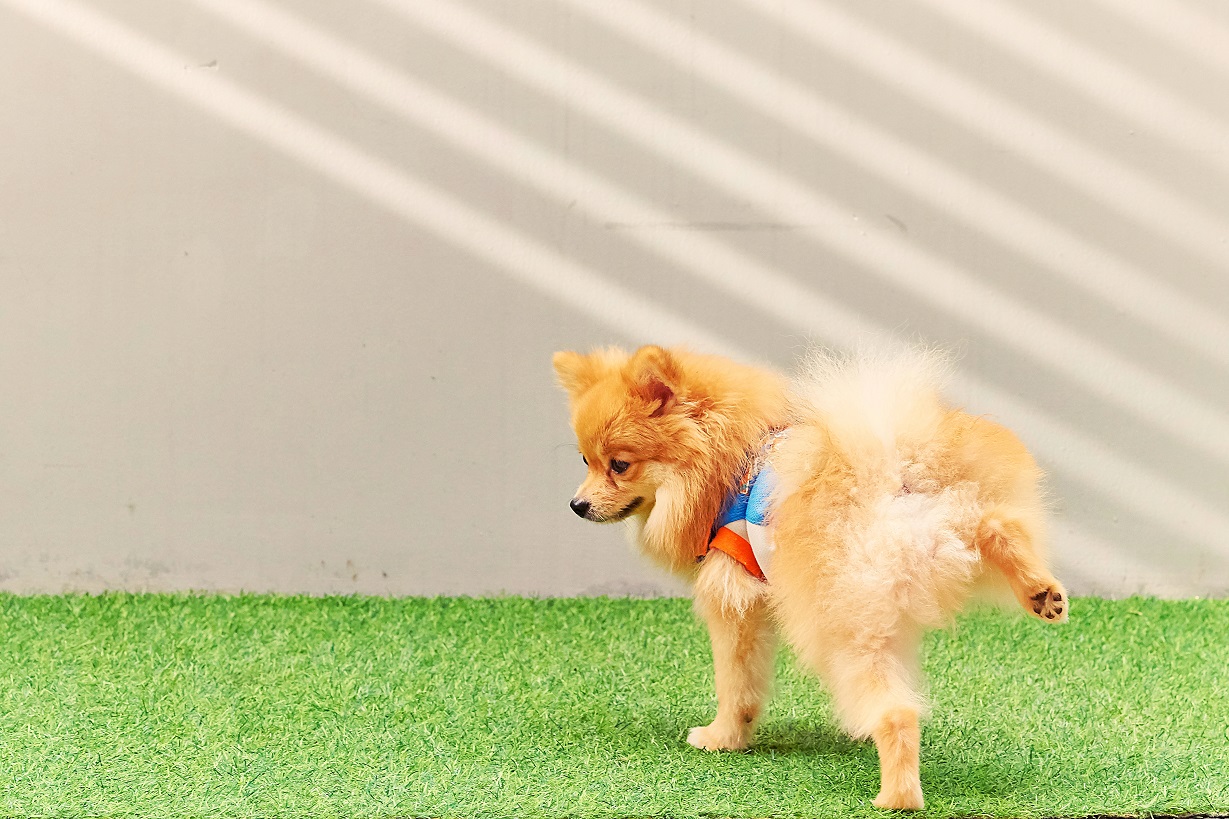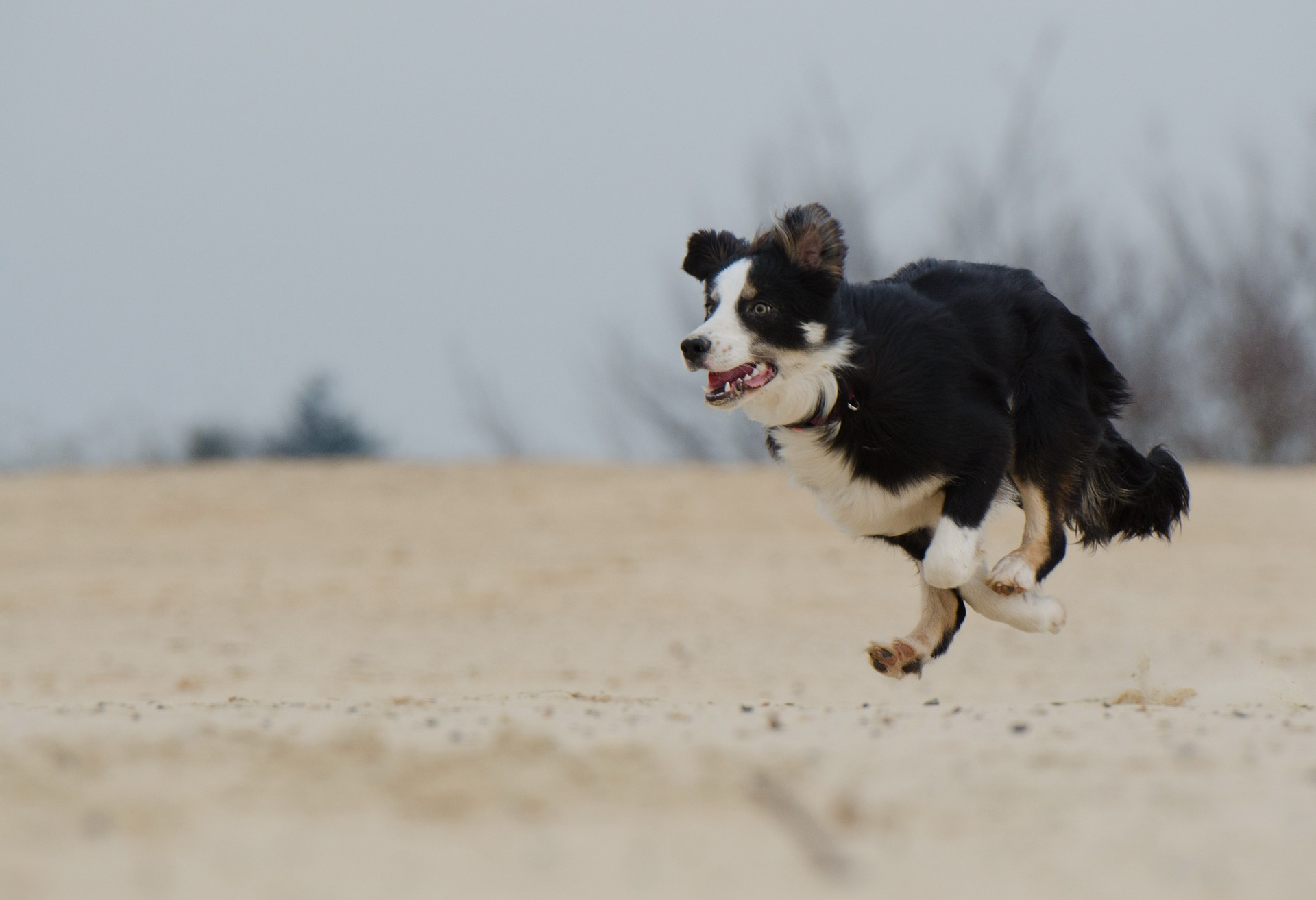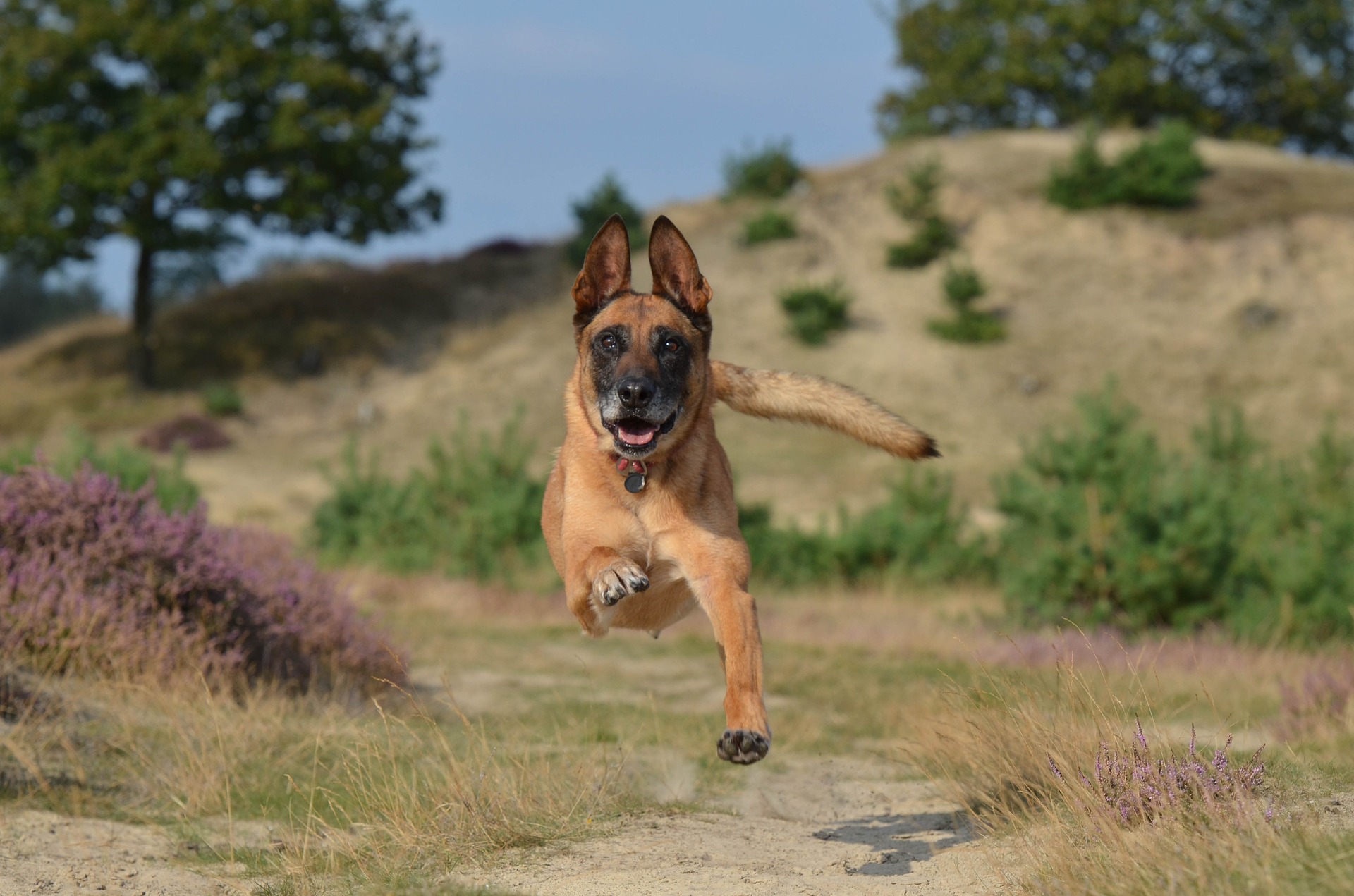Does neutering calm a dog down? It’s a common enough question (especially among owners of male dogs) and certainly one you’re not alone in asking.
As with most things, the answer is a bit more complicated than a simple yes or no.
When you neuter a male dog, you’re essentially sterilizing them by removing their testicles. As well as eliminating the dog’s fertility, it also stops the production of the male hormone, testosterone.
Just like in humans, testosterone has a long list of effects on dogs. Many of them are physical (increased muscle mass, larger bones, deeper bark, etc.), but some are behavioral.
When puberty kicks in, testosterone levels soar through the roof, resulting in a corresponding increase in aggression, self-confidence, territorial behavior, and libido.
By castrating a dog and shutting down the production of testosterone, it stands to reason that those kinds of behaviors will be significantly affected.
Complications are rare, and the overwhelming majority of dogs make a fast, full recovery after the procedure.
But is it worth it?
Obviously, the answer is 100% yes if your intention is to prevent unwanted litters.
Overpopulation in the dog and cat community is a massive problem, resulting in huge amounts of needless suffering and an ever-growing number of stray and abandoned pets.
Neutering and spaying are the quickest and easiest ways to tackle the problem.
But let’s leave the most obvious benefit of neutering aside for a moment. After all, for many dog owners, the attraction of neutering lies less in the physical and more in the behavioral.
Many owners report a calmer, more relaxed dog after neutering. Aggression is lowered, hyperactivity is reduced, and problems such as undesirable sexual behavior and urine marking are all but eliminated.
But is this the case for all dogs? Will neutering guarantee a more chilled canine?
In a word, no. It doesn’t guarantee anything.
So with this in mind (and before you go jumping in with both feet and a scalpel), I’d highly recommend taking a few minutes to check out the short video below from Dan Abdelnoor over at The Online Dog Trainer.
During the video, Dan discusses why most dog training methods ultimately set you up to fail before revealing the missing piece of the puzzle to getting your dog to calm down.
Better still, Dan’s training techniques take just minutes a day to put your dog in a calm, relaxed, highly responsive state.
So watch the video, apply the training, and you should see a huge improvement in your dog’s ability to remain calm without the need for castration.
Here’s the link to take a look: Click Here To Discover How To Finally Solve Your Dogs Overexcited, Naughty Behavior Using A Simple, Highly Effective Training Technique That Takes Just Minutes A Day To Implement!
(video will open in a new window)
The Pros and Cons of Neutering
No one is going to say you shouldn’t neuter your dog. It’s a safe procedure with innumerable benefits.
But having a firm grasp on exactly what those benefits are and what they most definitely aren’t, is crucial in setting the right expectations.
The Pro’s Of Neutering
First up, the pros:
Controlled Libido
If your dog can’t get within sniffing distance of a female dog without losing his mind.
If he’s always roaming around looking for a good time. If there’s nothing he won’t mount.
And if he’s generally randier than a college student on spring break, neutering is likely to be a big help.
Studies have shown that 70% of dogs show a moderate improvement in roaming after neutering, with 40% showing a marked improvement.
When it comes to mounting, 70% of dogs show a moderate improvement, with 25% showing a marked improvement.
Less Aggression
It’s worth noting that not all forms of aggression in dogs are hormonally driven. But for those that are, neutering can make a big difference.
According to studies, neutering can lead to a 1/3 reduction in aggression towards familiar dogs, a 20% reduction in aggression towards unfamiliar dogs, a 30% decrease in aggression towards familiar people, and a 10% reduction in aggression towards strangers.
Related Post: Will Neutering A Dog Stop Aggression?

Reduced Urine Marking
A dog that can’t walk past a tree without lifting his leg is a minor frustration.
But a dog whose impulse to mark is strong enough to make them mark indoors is a major one.
Neutering can have a dramatic impact on urine marking, reducing the occurrence in 80% of dogs and leading to a marked improvement in 40%.
Limited Obesity Risk
Some people think that neutering a dog is a one-way ticket to obesity. It’s not. Overfeeding and under exercising, on the other hand, most definitely are.
If your dog starts packing on the pounds after being castrated, it’s not the castration that’s to blame – it’s too much food and too few walks.
Medical Benefits
The benefits of neutering extend way beyond cutting down on urine marking and reining in your dog’s libido.
As well as eliminating the possibility of testicular cancer, it also greatly reduces the possibility of prostate disease, a very common occurrence in older male dogs.
The likelihood of perianal tumors and perineal hernias is also greatly diminished.
Population Control
Millions of unwanted dogs are euthanized every year. Short of teaching dogs how to use birth control, the number one way of eradicating the suffering and problems resulting from uncontrolled breeding is neutering and spaying.

The Cons Of Neutering Your Dog
Ready to hear the cons? Here they are:
It’s Not a One-Way Ticket to Success
Some people think that neutering is a fast-track solution to all of their dog’s behavioral problems. It isn’t.
Neutering won’t magically fix issues resulting from genetics, temperament, training, and upbringing.
If your dog acts out when they’re bored, if they love hunting down wildlife, or if they jump all over you in greeting, neutering isn’t going to change anything.
And if you want to fix those kinds of issues, you’ll need to identify and treat the underlying cause – and nope, that isn’t an excess of testosterone.
The only behaviors neutering is going to have an effect on are those driven by hormones, including undesirable sexual behavior, urine marking, and certain types of inter-dog aggression.
Cure-All? Not a Chance…
The confident, competitive aggression displayed by unneutered dogs around other male dogs can be significantly minimized by neutering. Urine marking, mounting, and roaming can also show signs of dramatic improvement after castration.
But cutting the supply of testosterone isn’t enough to eliminate all problem behaviors, even if those behaviors were initially triggered by puberty.
Some dogs might mount other dogs, people, or things as a stress response or as a way of eliciting attention. Others might have learned to love humping too much to stop.
Essentially, even those behaviors that seem hormonally driven can have other, more complex causes. Neutering would, therefore, need to be accompanied by behavior modification for positive results to be seen.
Increased Fear
It’s no coincidence that dogs emerge from puberty a lot more confident than when they entered it. Testosterone has a dramatic effect on a male dog’s confidence, leading to increased risk-taking and a reduced fear response.
While increased risk-taking is not necessarily something you’re going to welcome, a reduced fear response often is.
In many dogs, aggression isn’t driven by a desire to dominate or hurt another dog or person. It’s driven by fear.
Lunging at strangers, excessive barking, growling, leash reactivity… all of these can be signs of a fearful dog.
As testosterone can reduce the fear response, it suggests that fear aggression is likely to be less prominent in entire dogs than in neutered ones.

Age Matters
Timed correctly (i.e., prior to puberty), neutering can stop many unwanted behaviors from developing. The typical age for dogs to be neutered is between eight weeks to six months. If you leave it till later, the situation becomes a little more complicated.
Dogs aren’t just one big bag of hormones – they’re sentient beings capable of learning and discovering.
So, if a dog has found that humping things is a heap of fun, they’re not necessarily going to stop doing it just because their testosterone levels fall away.
Anesthesia Risk
While castration is generally free of complications, any form of surgery under anesthetic can pose a risk to older dogs.
If the procedure is recommended for your dog’s well-being (i.e., if castration is for a medical reason such as testicular tumors, prostatic enlargement, or perianal tumors). Then the benefits to your dog’s health and longevity will usually outweigh the risk.
Similarly, if the dog has undesirable behaviors that will be improved by castration (roaming, mounting, inter-dog aggression, excessive sexual interest, or urine marking). The benefits of neutering are likely to be greater than the associated risks.
However, it’s important to be aware of the potential complications of surgery and take the necessary steps with your vet to mitigate them.

So Does Neutering Calm A Dog Down?
If a dog’s behavior is driven by rampaging hormones, then neutering will certainly help.
The problem is, hormones aren’t the only driving force behind unwanted behaviors.
If your dog’s aggression or hyperactivity stems from not getting enough exercise, poor training techniques, or similar. Neutering isn’t going to solve the problem… not in isolation, in any case.
Even those behaviors that do respond to castration are likely to show a more marked improvement when the procedure is accompanied by other forms of behavior modification.
If you want to find a permanent solution to your dog’s behavioral problems, you’re going to need to look beyond the operating table and get back to basics… i.e., identify the need and address it with the appropriate training method.
While you’re doing that, you might also want to try the following:
Soothe
If your dog is hyperactive or anxious, neutering alone isn’t going to be enough to address the problem. In these cases, finding a way to soothe your dog and introduce some calm into their life is crucial.
Again, applying the techniques from Dan over at The Online Dog Trainer can help calm your dog and work to reduce the unwanted behaviors resulting from jangled nerves and over-excitement.
Used either as a pre-training warm-up or as an isolated de-stressor, it can make a significant difference to your dog’s responsiveness and focus.
Exercise
Don’t underestimate the difference exercise can make to your dog’s behavior. An under-stimulated dog is an unhappy dog, and an unhappy dog is prone to hyperactivity, tantrums, and destructive behavior.
Although giving your dog the free run of the yard is great, be sure to make time for regular, scheduled exercise. A run around the park and a game of frisbee will go a long way to releasing tension and working out any stress.
If you can, avoid other dogs at the park until your dog is calm. Too much social stimulation will only wind them up even more.
Reinforce
Unwittingly, a lot of dog owners encourage unwanted behaviors by acknowledging them. If your dog is jumping, barking, or otherwise bouncing off the ceiling, ignore the behavior.
Reaching out to soothe or pet them will simply teach them that those kinds of behaviors get attention.
Likewise, don’t forget to acknowledge good behavior with plenty of praise and treats.
By ignoring the bad and acknowledging the good, you’ll soon teach your pet to associate good behavior with good things happening. Once they do, there’ll be no holding them back.

Final Thoughts
If your dog is a raging sex fiend, neutering is likely to solve a lot of your problems in one fell swoop. Without testosterone raging through their veins, your dog’s libido will be sent into early retirement.
However, the effect of neutering on aggression is somewhat more complex.
Yes, inter-dog aggression is likely to be reduced (competing for female attention is no longer going to be sufficient reason to pull on the boxing gloves).
BUT the corresponding loss of self-confidence and increase in the fear response may aggravate fear-based aggression.
Similarly, other behaviors such as urine marking or humping may not be entirely eliminated through neutering if the behavior has already become learned.
They may not do it quite so often as before, but the habit may be too ingrained to be eliminated entirely.
Neutering is not a magic bullet. If your dog is hyperactive or aggressive become of hormonal reasons, then neutering should help.
But if the explanation for his behavior can be found elsewhere. Jumping in with a scalpel isn’t going to help.
Ultimately, neutering can only do so much. Everything else is down to you and your dog.
(video will open in a new window)

